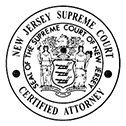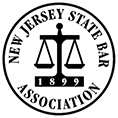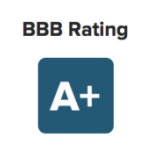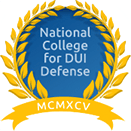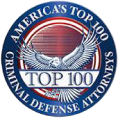Clark NJ Speeding Offense Lawyer
Speeding is easily the most common moving traffic offense. Over ten thousand drivers receive a ticket or summons every year in the twenty-one municipalities of Union County. Towns like Union, Clark, Cranford, Elizabeth, and Linden have the highest number of violations given their ties to the Garden State Parkway, the New jersey Turnpike, Interstate 78, U.S. Route 1 & 9 and other major roadways. If you were charged with speeding and need to decide whether to pay the ticket or hire a lawyer, there are two things you need to know. The first thing is that there are consequences from pleading guilty to speeding that include fines, surcharges, skyrocketing insurance rates and even the possibility of suspension of your driver’s license (e.g. because of accumulation of too may motor vehicle points or operating at an excessive speed like 90 MPH or more). The other thing you should know is that an attorney at our firm can avoid a conviction for speeding in most cases. This means that you escape all or many of the penalties that we just described. The Law Offices of Jonathan F. Marshall is comprised of eight defense attorneys, several of whom are former prosecutors, who have been appearing in the court system for over a century collectively. Lawyers are available 24/7 to assist you by contacting our Union NJ office. Initial consultations are free of charge. To take advantage of the opportunity to speak to an attorney at the firm, call 908-272-1700 for an immediate consultation.
How Does The State Prove That You Were Speeding?
The police and prosecutor have a number of methods for proving a speeding under N.J.S.A. 39:4-98. The most common variety of speeding case involves use of a K-55 radar unit at the time of the police encounter. The New Jersey Supreme Court affirmed this “scientific” method for establishing the speed of a vehicle in State v. Dantonio provided the state establishes in court that the radar was properly set up, tested for accuracy and is functioning correctly at the time of the violation.
Another method used to determine whether a vehicle is speeding is vehicle pace. Using this method, a police officer will come up behind the potential speeding vehicle and judge based on their pace whether the vehicle is speeding. This relatively low-tech way of proving speeding has repeatedly been held to be sufficient for a speeding ticket. It is well settled, moreover, that the State need not prove the exact speed of a vehicle that is alleged to have exceeded the lawful speed limit. Thus the approximate speed as obtained from a pace may be sufficient evidence to support a finding of guilt.
One method that may not be used, while allowed in other parts of the country, is the use of photo-radar devices. These devices are radar devices linked to cameras. They take a picture of both the driver and the license plate, when the person is suspected of speeding and the summons would then be sent in the mail. he State specifically outlawed this type of radar for the purposes of speeding violations.
Penalties & Sentencing Considerations in Speeding Cases
Fines. As previously stated, there are numerous consequences that flow from pleading or being found guilty of speeding. In terms of the fine for speeding, the standard range is $50 to $200. These limits are doubled, however, if the violation: (1) occurs in a “safe corridor” or construction zone; (2) involves a speed that is 20 miles per hour or more over the limit; or (3) occurs in a 65 MPH zone and the ticket is for 10 miles per hour or more over the speed limit.
Motor Vehicle Points. A speeding conviction will also lead to the assessment of penalty points by the Motor Vehicle Commission (MVC). The number of points assessed depends upon the excess speed reported to the MVC. Two points is assigned to speeding between 1 and 14 miles per hour over the limit. Four points results when someone speeds between 15 and 29 miles over the limit. Speeding 30 miles per hour or more over the speed limit carries 5 penalty points. The accumulation of motor vehicle points is important in two respect. Accumulation of 12 points or more results in a suspension of your privilege to operate a motor vehicle. In addition, an accumulation of 4 points or more results in annual motor vehicle surcharges. Surcharges are imposed annually for a period of three consecutive years once someone crosses the 4 point threshold.
Insurance Rates. Insurers are permitted to increase your insurance rates if you convicted of speeding. The more violations you accumulate, the worse it gets. The key is avoiding this cycle is to stop it in its tracks by making sure that a speeding conviction does not reach your record.
Driver’s License Suspension. When a driver is ticketed for speeding in an excessive manner, they are exposed to the possibility of suspension of their license. The most common scenario is someone operating on the Garden State Parkway or the New Jersey Turnpike at a speed of 90 MPH or more. Individuals facing such a scenario are strongly encouraged to consult an attorney rather than walking into court unrepresented only to be shocked when they leave with a suspension. Municipal court judges take hide speed cases very seriously, even when no commensurate reckless driving is issued, and it is always best to retain an experienced lawyer in this scenario.
Cranford NJ Speeding Ticket Attorney
Given the potentially heavy fines, surcharges, points and the ramifications to your ability to sustain your driving privileges (e.g. 12 or more points) stemming from speeding, you should not attempt to face a speeding charge alone. This is particularly true when you consider that the attorneys at the Law Offices of Jonathan F. Marshall are successful in defending this offense in a high percentage of cases. Our lawyers utilize their over 100 years of combined experience to achieve favorable outcomes in Springfield, Hillside, Kenilworth, Roselle Park, Rahway and other municipal courts in Union County. To speak to an attorney immediately, you are encouraged to call 908-272-1700. A lawyer is available now to assist you.


